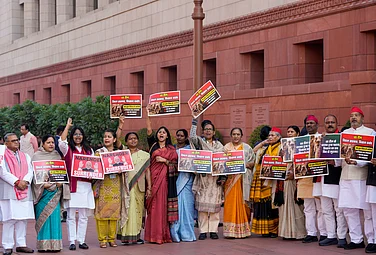French President Emmanuel Macron has lost the Parliamentary majority after a strong win by a newly-formed left alliance and the far-right. The results were declared in the early hours of Monday and the loss comes two months after Macron was re-elected as the French President. Polls were held nationwide to select the 577 members of the National Assembly.
Earlier, Parliamentary projections, which are based on partial results, showed that Macron's candidates would win between 200 and 250 seats — much less than the 289 required to have a straight majority at the National Assembly, France's most powerful house of parliament.
A new coalition, NUPES, — made up of the hard left, the Socialists and the Greens — was projected to become the main opposition force with about 150 to 200 seats. The far-right National Rally was projected to register a huge surge with potentially more than 80 seats, up from eight before.
Macron losing control of the French National Assembly has suddenly thrown state politics into turmoil, where he is expected to make negotiations with the other parties to retain power. Macron's government will still have the ability to rule, but only by bargaining with legislators. The centrists could try to negotiate on a case-by-case basis with lawmakers from the centre-left and from the conservative party — with the goal of preventing opposition lawmakers from being numerous enough to reject the proposed measures.
The government could also occasionally use a special measure provided by the French Constitution to adopt a law without a vote.
A similar situation happened in 1988 under Socialist President Francois Mitterrand, who then had to seek support from the Communists or the centrists to pass laws.
These parliamentary elections have once again largely been defined by voter apathy — with over half the electorate staying home.
(with inputs from PTI)






















